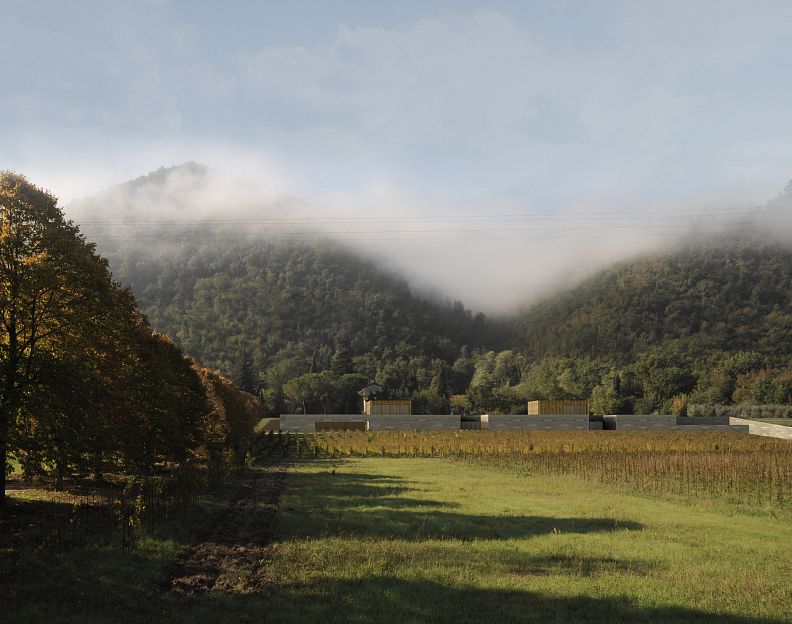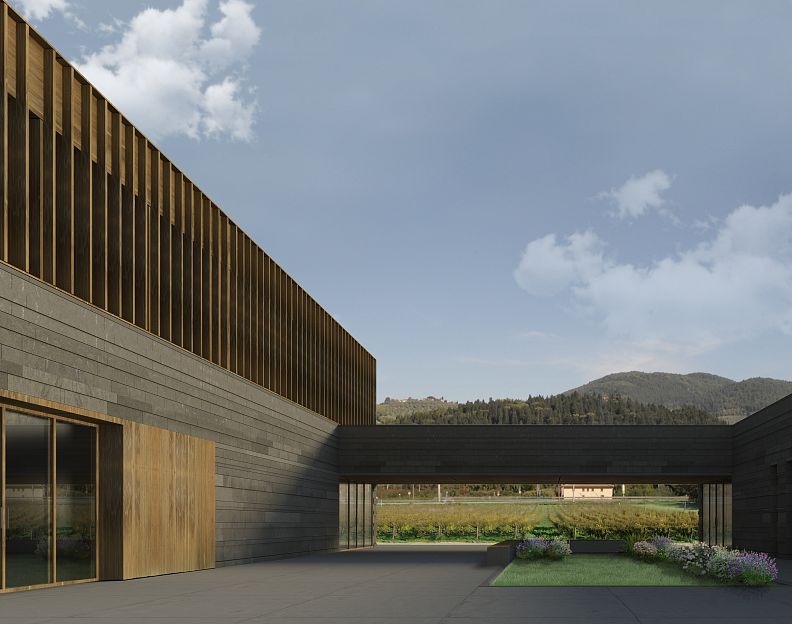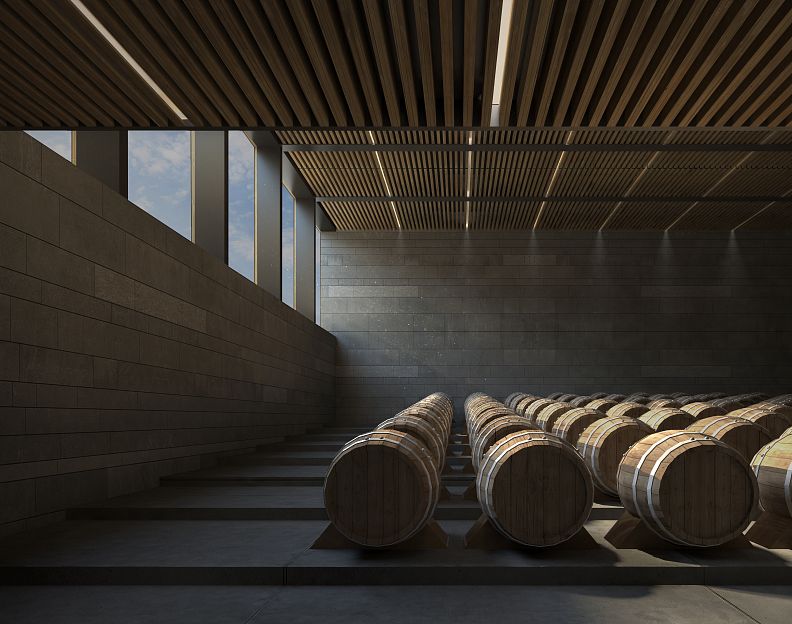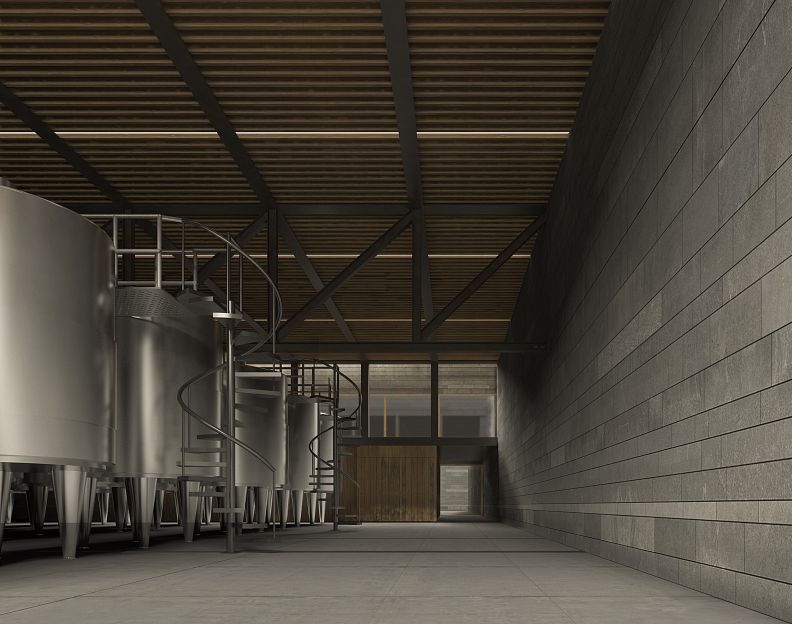PETRETO WINERY, Azienda agricola il Petreto, Bagno a Ripoli, Florence italy

Project idea
The project stems from the need of the farm of Petreto for a new winery for wine production and customer reception. The project area is located in Rosano, a small hamlet of the city of Bagno a Ripoli, in a predominantly agricultural context between the valley and the hills of Chianti, denoted by a strong naturalistic value that has governed and controlled the design process behind.
Project description
The project is based on the deep relationship that man has with the landscape, from feeling part of it that orders us and guides us. The design elements blend with the environment in a close relationship of dualism. The winery was born from a desire to measure the territory, positioning itself with a pure and archetypal form to generate a limit between old and new and a podium at the ancient village of the petreto. The volume is in continuity with the southern slope of the hill, articulating itself on several levels and adapting to the terrain. The courts that are generated by the subtraction of volumes relate the building with the context while the two additional volumes rise on the basement and frame the existing company. The main elevation of the building faces the street. The flows between workers and visitors are well separated; following the road on the right you reach the court of work, it is located in a basement. On the courtyard face the bottling rooms, warehouse and technical rooms; from it you can access to the cellar through a glass hallway. Inside the cellar there are vat cellar, refinement and barrel cellar; all the spaces, including the previous ones, are connected through a wide corridor where all the wine production flows.
Walking along the road towards the village, at a higher level than the cellar, there is the square where the reception and the administration building overlook the view of the vineyard.
The reception area is articulated in the hall, in the tasting and selling areas of the product, directly overlooking the barrel cellar and the landscape.
Finally, the building is connected to the level of the vineyard through a ramp that allows you to reach a terrace overlooking the landscape and the restaurant of the new complex.
Technical information
The cellar has three floors two above ground and the production floor underground. The load-bearing structure of the project is made of reinforced concrete and metal frames. The external coatings of the structure as well as the interior finishes pay particular attention to construction techniques and local materials, so as to give a greater link between the existing and the new. In particular, we opted for a coating of local stone for the basement body of the structure and a coating of glass and brise-soleil in larch wood for the upper bodies, thus giving the project a perfect fit in the historical and natural context of the site.
Documentation
Show PDF 1Show PDF 2Show PDF 3Show PDF 4Show PDF 5Show PDF 6











